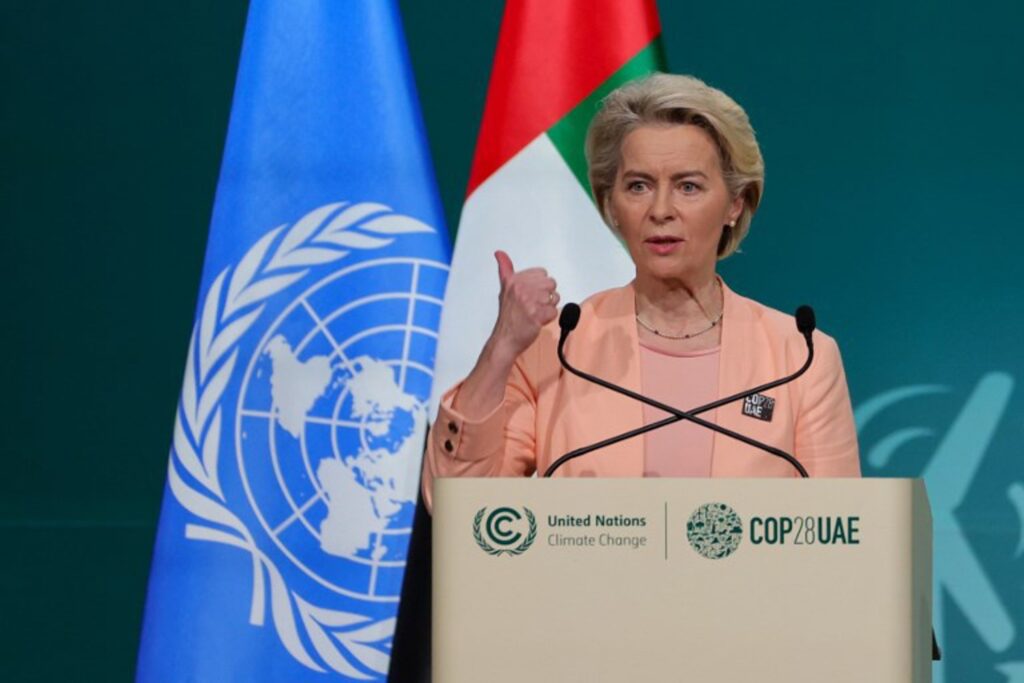More than 110 countries wish to see the UN climate change conference, COP28, adopt the goal of tripling renewable energy and doubling energy efficiency by 2030, European Commission President Ursula von der Leyen said on Friday in Dubai.
This appeal was initiated by the European Union in the Spring, and subsequently backed by the G7 and G20 countries, responsible for 80% of global greenhouse gas emissions.
Noting that the EU’s call had transformed into a powerful movement, Ms. von der Leyen urged the summit, which began on Thursday and ends on 15 December, to include the goals in its final decision, and send a strong message to both investors and consumers.
The goals are closely tied to much more challenging debates on reducing or even phasing out fossil fuels. The tension was evident in September, when the G20 committed to “encouraging efforts” to reach this target, but remained silent on the fate of fossil fuels in its final statement.
Tripling renewable energy sources such as wind, sun, hydropower and biomass, is the leading measure within scenarios for carbon neutrality. The International Energy Agency (IEA) emphasises that it is the most significant lever for replacing coal, gas and oil if the world intends to remain under 1.5°C of pre-industrial warming levels.
Progress is already evident. From 2015 to 2022, renewable installations grew on average by 11% each year. The IEA predicts unprecedented growth of around 30% in 2023 due to soaring fuel prices and energy instability linked to the war in Ukraine.
Countries’ efforts will greatly vary, according to Ember, a think-tank that deems the target achievable.
Some nations are already on a path towards doubling their efforts, while others, such as significant emitters Australia, Japan, South Korea and the United Arab Emirates, have room for improvement.

